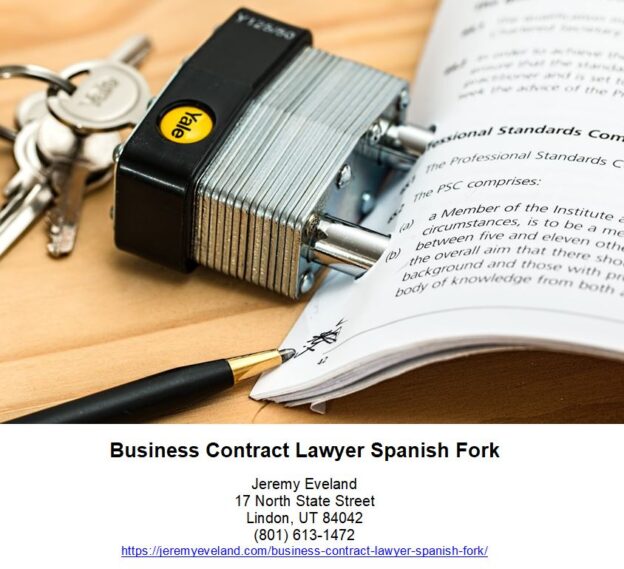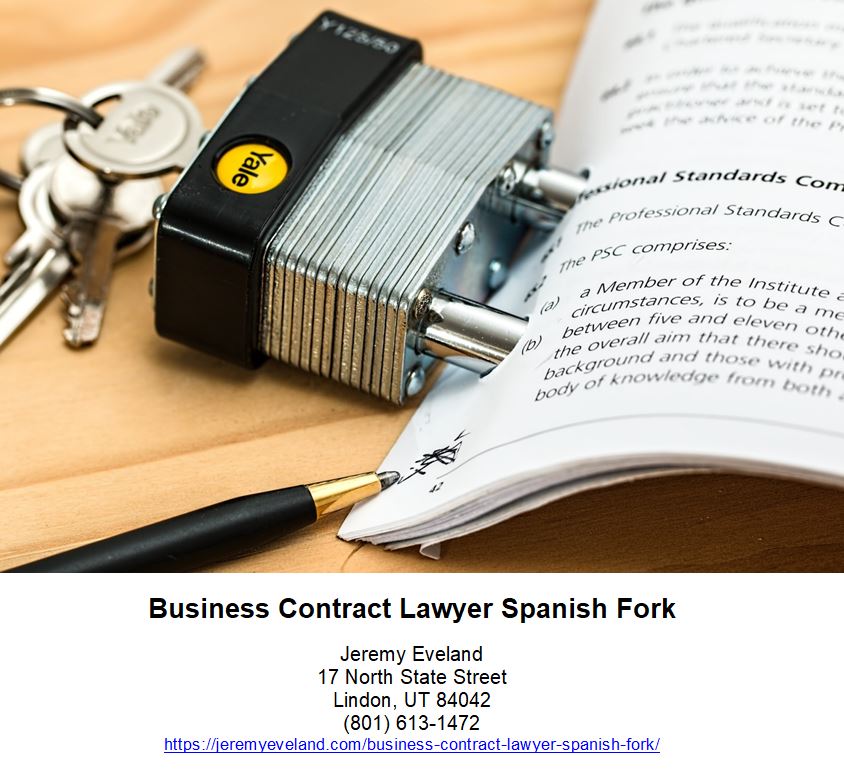Are you involved in commercial real estate transactions? If so, it’s crucial to understand the potential environmental liabilities that can arise and how to protect yourself. In this article, we will explore the topic of environmental liability and indemnification in commercial real estate. Whether you are a buyer, seller, or an attorney representing clients in these transactions, having a comprehensive understanding of this subject is essential. From identifying potential risks to ensuring proper indemnification, we will cover all the key aspects that you need to know. By the end of this article, you will be equipped with the knowledge to navigate environmental liability issues confidently. Don’t hesitate to reach out to lawyer Jeremy Eveland for personalized guidance.
Understanding Environmental Liability in Commercial Real Estate
Introduction to Environmental Liability
When it comes to commercial real estate, understanding environmental liability is crucial. Environmental liability refers to the legal responsibility and potential financial burden that property owners and other stakeholders may face when dealing with contamination or pollution on their properties. This article aims to provide a comprehensive overview of environmental liability in commercial real estate, including the different types of liabilities, the importance of environmental assessments and due diligence, disclosure obligations and compliance requirements, the role of regulatory agencies, negotiating indemnification provisions, environmental insurance coverage, allocating liabilities in real estate transactions, remediation and cleanup of contaminated sites, and the litigation and dispute resolution process. By the end of this article, you will have a better understanding of environmental liability and be equipped to make informed decisions regarding commercial real estate.
Environmental Liability: An Overview
Environmental liability encompasses the legal obligations and potential financial repercussions that can arise from pollution or contamination on commercial real estate properties. These liabilities can affect property owners, tenants, lenders, and other stakeholders associated with the property. Environmental liabilities can arise from various sources, including historical industrial activities, improper waste disposal, hazardous material spills, and underground storage tanks. It is essential to understand that liability can be imposed on both current and former owners of a property, as well as operators and tenants who contributed to the contamination. Therefore, conducting thorough environmental due diligence is crucial when engaging in commercial real estate transactions to identify and manage potential liabilities.
Types of Environmental Liabilities in Commercial Real Estate
There are several types of environmental liabilities that can be encountered in commercial real estate. These liabilities can include both direct and indirect costs. Direct costs refer to expenses associated with investigating and remediating the contamination, while indirect costs encompass legal fees, insurance premiums, loss of property value, business interruption, and potential fines or penalties. The specific types of environmental liabilities can vary depending on the nature of the contamination and the applicable laws and regulations in a particular jurisdiction. Some common types of environmental liabilities include soil and groundwater contamination, asbestos and lead-based paint hazards, mold infestations, and vapor intrusion issues. It is important to thoroughly assess and address these liabilities to mitigate potential risks and financial obligations.
Importance of Environmental Assessments
Environmental assessments are a critical component of due diligence in commercial real estate transactions. These assessments help identify potential environmental liabilities, evaluate the level of risk associated with a property, and determine the need for further investigation or remediation. The most commonly used environmental assessment is the Phase I Environmental Site Assessment (ESA), which involves a review of historical records, site inspections, interviews, and research to identify potential environmental concerns. A Phase I ESA is typically conducted by environmental professionals and follows established industry standards. The information obtained from a Phase I ESA can inform decision-making and help parties involved in a transaction understand the potential environmental liabilities associated with a property.
Phase I Environmental Site Assessments
A Phase I ESA is the initial step in assessing potential environmental liabilities in commercial real estate transactions. It involves a comprehensive review of the property’s history, including past and current uses, regulatory filings, aerial photographs, and interviews with current and former property owners, tenants, and neighbors. The purpose of a Phase I ESA is to identify potential environmental concerns and assess the likelihood of contamination on the property. If any potential issues are identified during the Phase I ESA, a Phase II ESA may be recommended to further investigate and assess the extent of contamination.
Phase II Environmental Site Assessments
A Phase II ESA involves the collection and analysis of soil, groundwater, or other samples to determine the presence and extent of contamination on a property. This assessment is typically conducted following the identification of potential environmental concerns during a Phase I ESA. Phase II ESAs are more intrusive and involve on-site investigations, sampling, laboratory testing, and data analysis. The results of a Phase II ESA can help determine the nature and severity of contamination, as well as inform decisions regarding remediation and liability allocation.

Conducting a Comprehensive Environmental Due Diligence
To mitigate environmental liabilities in commercial real estate transactions, it is crucial to conduct a comprehensive environmental due diligence process. This process involves conducting both Phase I and Phase II ESAs, as well as reviewing relevant documentation, permits, and compliance records. The purpose of environmental due diligence is to identify, evaluate, and manage potential risks associated with environmental contamination. By conducting a thorough due diligence process, stakeholders can make informed decisions, negotiate appropriate indemnification provisions, secure environmental insurance coverage, and implement necessary remediation measures to protect their interests.
Disclosure Obligations for Sellers
Sellers of commercial real estate have legal obligations to disclose known environmental liabilities to prospective buyers. These obligations may vary depending on the jurisdiction and the specific laws in place. However, it is generally advisable for sellers to disclose all known environmental issues, regardless of whether they are legally obligated to do so. Failure to disclose known environmental liabilities can lead to legal disputes, financial penalties, and reputational damage. To ensure compliance with disclosure obligations, sellers should carefully assess the property for potential environmental concerns, maintain accurate and updated records, and provide full disclosure to potential buyers.
Compliance Requirements for Buyers
Buyers of commercial real estate also have compliance requirements when it comes to environmental liabilities. It is crucial for buyers to conduct thorough due diligence and gather as much information as possible about the property’s environmental history and potential risks. Buyers should analyze the findings of Phase I and Phase II ESAs, review compliance records, permits, and regulatory filings, and consult with environmental experts and attorneys. This due diligence process helps buyers understand the potential liabilities associated with a property and negotiate appropriate indemnification provisions and contractual protections. Buyers should also be aware of any regulatory requirements or obligations that may arise after acquiring the property, such as ongoing monitoring, reporting, and remediation.
Mandatory Disclosures and Legal Implications
Non-compliance with disclosure obligations and failure to address environmental liabilities can lead to significant legal consequences for both sellers and buyers. Sellers who fail to disclose known environmental issues may face legal action, financial penalties, and reputational damage. Buyers who neglect to conduct thorough due diligence and subsequently acquire a contaminated property may become liable for the costs of investigation, remediation, and potential legal disputes. It is crucial for both sellers and buyers to understand the legal implications of environmental liabilities and ensure compliance with disclosure obligations to mitigate potential risks and protect their interests.
Environmental Protection Agency (EPA)
The Environmental Protection Agency (EPA) is a federal agency responsible for enforcing environmental laws and regulations in the United States. The EPA plays a significant role in addressing environmental liabilities in commercial real estate by setting standards, conducting inspections, and imposing penalties for non-compliance. The EPA has the authority to investigate and take enforcement actions against individuals or entities that violate environmental laws, including those related to contamination, pollution, hazardous waste management, and air and water quality. Commercial real estate owners and operators should familiarize themselves with the EPA’s regulations and guidelines to ensure compliance and mitigate potential liabilities.
State and Local Regulatory Agencies
In addition to the EPA, state and local regulatory agencies also play a crucial role in addressing environmental liabilities in commercial real estate. These agencies may have their own specific laws, regulations, and oversight mechanisms related to environmental contamination and pollution. State and local agencies are responsible for enforcing environmental standards, conducting inspections, and addressing potential liabilities within their jurisdictions. It is important for commercial real estate stakeholders to be aware of the specific regulatory requirements and reporting obligations in the jurisdictions where their properties are located to ensure compliance and mitigate potential liabilities.

Enforcement Actions and Remediation Orders
In cases where environmental contamination or pollution is identified, regulatory agencies may take enforcement actions and issue remediation orders to address the issue. These enforcement actions can include fines, penalties, and even criminal charges in severe cases of non-compliance. Regulatory agencies can also require responsible parties to conduct remediation activities to mitigate the impact of contamination. It is crucial for commercial real estate owners and operators to promptly address and comply with any enforcement actions or remediation orders issued by regulatory agencies to avoid further legal consequences and potential escalation of liabilities.
Understanding Indemnification in Commercial Real Estate
Indemnification is a legal mechanism used in commercial real estate transactions to allocate potential environmental liabilities between the parties involved. An indemnification clause in a contract or agreement outlines the responsibilities and potential financial obligations of each party regarding environmental liabilities. The purpose of an indemnification provision is to ensure that the party responsible for causing or contributing to the contamination bears the associated costs and risks. Indemnification provisions can greatly impact a party’s liability exposure and financial obligations in the event of environmental contamination.
Key Components of an Indemnification Clause
An indemnification clause typically includes key components that define the scope, terms, and limitations of the indemnification obligation. These components may vary depending on the specific circumstances and the parties involved in a commercial real estate transaction. However, some common components of an indemnification clause include identifying the responsible party, specifying the types of liabilities covered, establishing time limits for potential claims, outlining the process for indemnification, determining any limitations or caps on liability, and addressing the allocation of legal costs. Careful consideration and negotiation of these components are essential to ensure that the indemnification provision adequately protects the parties’ interests.
Negotiating Indemnification Provisions: Seller’s Perspective
From a seller’s perspective, negotiating indemnification provisions in a commercial real estate transaction involves seeking to limit potential liability exposure. Sellers may aim to include provisions that hold buyers responsible for all future environmental liabilities and limit the seller’s liability to known and disclosed issues at the time of the transaction. Sellers may also seek to establish time limitations for potential claims, require buyers to provide indemnity for third-party claims, and negotiate caps or limits on the amount of indemnification. Consulting with experienced legal counsel is essential for sellers to negotiate favorable indemnification provisions that protect their interests.
Negotiating Indemnification Provisions: Buyer’s Perspective
For buyers, negotiating indemnification provisions in commercial real estate transactions involves seeking maximum protection against potential environmental liabilities. Buyers may aim to include provisions that hold sellers responsible for all past, present, and future environmental liabilities, regardless of whether they were known or disclosed at the time of the transaction. Buyers may also seek to establish longer time limits for potential claims, require sellers to provide indemnity for third-party claims, and negotiate higher caps or limits on the amount of indemnification. Engaging a knowledgeable attorney is crucial for buyers to negotiate robust indemnification provisions that mitigate their risk and protect their interests.
Overview of Environmental Insurance
Environmental insurance is a risk management tool that provides coverage for potential environmental liabilities associated with commercial real estate. These insurance policies are designed to protect property owners, operators, lenders, and other stakeholders from financial losses arising from contamination, pollution, and other environmental risks. Environmental insurance can provide coverage for costs associated with investigation, remediation, legal defense, and third-party liabilities. It can also offer protection against potential property value loss, business interruption, and fines or penalties imposed by regulatory agencies. Understanding the different types of environmental insurance policies and their limitations is crucial when considering the need for coverage.
Types of Environmental Insurance Policies
There are various types of environmental insurance policies available to address different types of environmental liabilities in commercial real estate. Some common types of environmental insurance policies include pollution liability insurance, environmental impairment liability insurance, remediation cost-cap insurance, and transactional environmental insurance. Pollution liability insurance provides coverage for third-party claims and remediation costs associated with pollution or contamination on a property. Environmental impairment liability insurance protects against claims arising from pollution-related bodily injury, property damage, or environmental damage. Remediation cost-cap insurance covers additional costs that exceed the estimated remediation costs. Transactional environmental insurance provides coverage for known or potential environmental liabilities during the due diligence and transaction process.
Benefits and Limitations of Environmental Insurance
Environmental insurance offers several benefits for commercial real estate stakeholders. It provides financial protection against unexpected environmental liabilities and can help secure financing and attract investors. Environmental insurance can also facilitate the negotiation and structuring of transactions by allocating potential risks and liabilities. However, it is important to note that environmental insurance has limitations. Policies may have coverage exclusions, deductibles, and caps that can impact the extent of coverage. It is crucial to carefully review and understand the terms and conditions of an environmental insurance policy, as well as consider the cost-effectiveness of the coverage in relation to the potential liabilities involved.
Considering Environmental Insurance Coverage
Determining the need for environmental insurance coverage in commercial real estate transactions requires a careful assessment of the specific risks, liabilities, and potential costs involved. Factors to consider when considering the need for coverage include the property’s location, historical use, proximity to environmental hazards, and the potential for contamination. The scope and cost of remediation, potential legal disputes, regulatory compliance requirements, and the financial capacity of the parties involved should also be evaluated. Consulting with an experienced insurance broker and environmental attorney can provide valuable guidance and assist in making an informed decision regarding the necessity and adequacy of environmental insurance coverage.
Transfer of Environmental Liabilities
When engaging in commercial real estate transactions, parties must consider the transfer of environmental liabilities. The transfer of liabilities typically occurs through contractual agreements, including indemnification and hold harmless clauses. These clauses allocate responsibilities and potential financial obligations between the parties involved. The party responsible for causing or contributing to the contamination typically assumes the environmental liabilities associated with the property. Properly addressing the transfer of environmental liabilities is crucial to ensure that the responsible party bears the associated costs and risks.
Indemnification and Hold Harmless Agreements
Indemnification and hold harmless agreements are contractual provisions that allocate the responsibility for environmental liabilities in commercial real estate transactions. These provisions outline the extent of indemnification and hold harmless obligations, as well as the process for making a claim and resolving any disputes. Indemnification provisions typically involve the responsible party agreeing to defend, indemnify, and hold harmless the other party from any claims, costs, damages, or losses arising from environmental liabilities. Hold harmless agreements provide additional protection by requiring the responsible party to assume any legal liability, damages, or losses that may arise from the environmental liabilities. Negotiating and crafting these agreements require careful consideration of the specific circumstances and the parties’ interests to ensure clarity and fairness.
Limitations on Liability and Caps
To manage and mitigate potential environmental liabilities in commercial real estate transactions, parties often include limitations on liability and caps in the contractual agreements. These limitations and caps establish the maximum amount of indemnification or financial responsibility of the parties involved. The purpose is to limit potential financial exposure to a specific amount, which can be negotiated and tailored according to the specific circumstances of the transaction. Limitations on liability and caps can help protect parties from excessive financial burdens while still ensuring that responsible parties assume a reasonable level of responsibility for the potential environmental liabilities.

Negotiating Environmental Liability Allocation
Negotiating the allocation of environmental liabilities in commercial real estate transactions requires careful consideration and negotiation. Both buyers and sellers should consult with experienced attorneys and environmental professionals to assess the risks and potential costs associated with the property. Parties should engage in open and transparent communication to identify and understand potential environmental liabilities, as well as to negotiate fair and equitable allocation of responsibilities. By considering factors such as the property’s condition, historical use, potential contamination, and the financial capacity of the parties, a well-structured allocation of environmental liabilities can be established that protects the interests of all parties involved.
Responsibilities for Remediation
When contamination or pollution is identified on a commercial real estate property, the responsibility for remediation typically falls on the party or parties responsible for causing or contributing to the contamination. The responsible party may be required to conduct a remediation process to clean up and mitigate the impact of contamination. The extent and complexity of remediation can vary widely depending on the type and severity of contamination, as well as the regulatory requirements and guidelines in the jurisdiction where the property is located. It is crucial for responsible parties to promptly address and comply with the remediation obligations to mitigate potential health and environmental risks, as well as potential legal consequences.
Cost Allocation for Remediation
The allocation of costs for remediation in commercial real estate transactions depends on various factors, including the terms of the contractual agreements, indemnification provisions, and negotiation between the parties involved. Responsible parties may bear the costs of investigation, cleanup, and restoration, including expenses related to environmental consultants, engineers, and remediation contractors. The allocation of costs can be negotiated based on factors such as the degree of responsibility, financial capacity, and potential financial impact on the parties. Properly allocating the costs for remediation is crucial to ensure that the responsible parties bear an appropriate and proportionate share of the financial burden associated with the contamination.
Role of Environmental Consultants and Experts
Environmental consultants and experts play a critical role in addressing environmental liabilities in commercial real estate. These professionals provide valuable expertise, guidance, and assistance throughout the due diligence, remediation, and legal processes. Environmental consultants can conduct thorough assessments, investigations, and testing to identify potential contamination, evaluate risks, and develop remediation plans. They can also provide ongoing monitoring and compliance services to ensure that properties meet regulatory requirements. Environmental experts can provide expert testimony, scientific evidence, and technical support in legal disputes and litigation related to environmental liabilities. Collaborating with experienced environmental consultants and experts is essential to effectively manage and mitigate environmental liabilities in commercial real estate transactions.
Legal Implications and Risk Mitigation
Environmental liabilities in commercial real estate can have significant legal implications for the parties involved. Non-compliance with environmental laws and regulations, failure to conduct thorough due diligence, and inadequately addressing potential environmental liabilities can lead to legal disputes, financial penalties, and reputational damage. It is crucial for all stakeholders to be aware of the legal requirements, disclosure obligations, and compliance regulations in the jurisdictions where their properties are located. Engaging experienced legal counsel who specializes in environmental law can provide valuable guidance, risk mitigation strategies, and legal representation to safeguard the interests of the parties involved.
Common Disputes in Environmental Liability
Disputes related to environmental liability in commercial real estate can arise in various scenarios. Common disputes include disagreements over the identification and allocation of liability, disputes over the extent and necessity of remediation, conflicts regarding the adequacy of indemnification provisions, and controversies pertaining to compliance with regulatory requirements. Disputes can also arise regarding the interpretation and enforcement of contractual agreements, disclosure obligations, and compliance with applicable laws and regulations. Promptly recognizing and addressing potential disputes is crucial to mitigate their impact and to explore alternative dispute resolution methods.
Alternative Dispute Resolution Methods
When disputes regarding environmental liability in commercial real estate arise, parties may consider utilizing alternative dispute resolution methods to resolve their differences outside of the courtroom. Mediation and arbitration are commonly used methods of dispute resolution that offer a more collaborative and less adversarial approach compared to traditional litigation. In mediation, a neutral third party facilitates communication and negotiation between the parties to reach a mutually acceptable resolution. In arbitration, a neutral third party, or panel of arbitrators, makes a binding decision based on the evidence and arguments presented by the parties. Engaging in alternative dispute resolution methods can help parties save time, costs, and preserve business relationships.
Litigation and Court Proceedings
In some cases, despite efforts to resolve disputes through alternative methods, litigation and court proceedings may be necessary to address environmental liability in commercial real estate. Litigation involves legal proceedings initiated in a court of law, where parties present their cases and evidence to a judge or jury. The court then makes a binding decision on the dispute. Litigation can be a lengthy, complex, and costly process, requiring the involvement of attorneys, expert witnesses, and considerable time and resources. Parties involved in commercial real estate transactions should be prepared for the possibility of litigation and enlist experienced legal counsel to effectively navigate the process and protect their interests.
Role of Commercial Real Estate Lawyers
Commercial real estate lawyers play a crucial role in addressing environmental liability in commercial real estate transactions. These legal professionals specialize in real estate law and possess the knowledge and expertise to assist clients throughout the process, from conducting due diligence to negotiating contracts and facilitating dispute resolution. Commercial real estate lawyers can provide guidance on compliance with environmental laws and regulations, review and draft contractual agreements, assess and manage potential risks, and represent clients in legal disputes. Consulting with a commercial real estate lawyer is essential to ensure compliance, protect interests, and mitigate potential environmental liabilities.
Consulting a Commercial Real Estate Lawyer
Given the complexities and potential risks associated with environmental liability in commercial real estate, consulting with a commercial real estate lawyer is crucial for parties involved in these transactions. A knowledgeable attorney can provide guidance and assistance in conducting thorough due diligence, negotiating contractual agreements, addressing disclosure obligations, complying with regulatory requirements, and managing potential disputes. Commercial real estate lawyers can also help craft effective and enforceable indemnification provisions, assess the adequacy of environmental insurance coverage, and ensure compliance with applicable laws and regulations. By seeking legal support early in the process, parties can protect their interests, mitigate potential risks, and make informed decisions regarding environmental liability in commercial real estate.
Importance of Legal Support
When dealing with environmental liability in commercial real estate, legal support is of paramount importance. Environmental liabilities can have significant financial and legal implications, and it is essential to have an experienced attorney by your side to guide you through the process and protect your interests. A commercial real estate lawyer with expertise in environmental law can provide valuable advice, negotiate favorable terms, ensure compliance with disclosure obligations and regulatory requirements, and represent you in any legal disputes that may arise. By enlisting the support of a skilled attorney, you can navigate environmental liabilities with confidence and make informed decisions that protect your investment.
Choosing the Right Lawyer
Selecting the right lawyer is crucial when dealing with environmental liability in commercial real estate. It is important to choose an attorney with expertise and experience in both commercial real estate and environmental law. Look for a lawyer who has a track record of success in handling environmental liability cases and who understands the complexities and nuances of the field. Consider their reputation, qualifications, and knowledge of local laws and regulations. Personal rapport and open communication are also important factors to consider when choosing a lawyer, as a strong client-lawyer relationship can foster trust and facilitate effective representation.
How a Lawyer Can Assist with Environmental Liability
A commercial real estate lawyer with expertise in environmental law can provide valuable assistance throughout the process of addressing environmental liability. They can conduct thorough due diligence, review and negotiate contractual agreements, provide guidance on disclosure obligations and compliance requirements, assess environmental risks, and advise on risk mitigation strategies. Lawyers can also assist in negotiating indemnification provisions, evaluating the adequacy of environmental insurance coverage, and representing clients in litigation or alternative dispute resolution. By leveraging their knowledge and experience, lawyers can help you navigate the complexities of environmental liability and protect your interests.
Request a Consultation with Jeremy Eveland
If you are involved in commercial real estate and have concerns or questions related to environmental liability, it is essential to seek legal advice from an experienced attorney. Jeremy Eveland is a commercial real estate lawyer with expertise in environmental law. With years of experience helping clients navigate environmental liabilities, Jeremy can provide comprehensive legal support to protect your interests. Contact Jeremy Eveland today to request a consultation and learn how he can assist you in addressing environmental liability in commercial real estate. Safeguard your investment and make informed decisions with the guidance of an experienced attorney.







